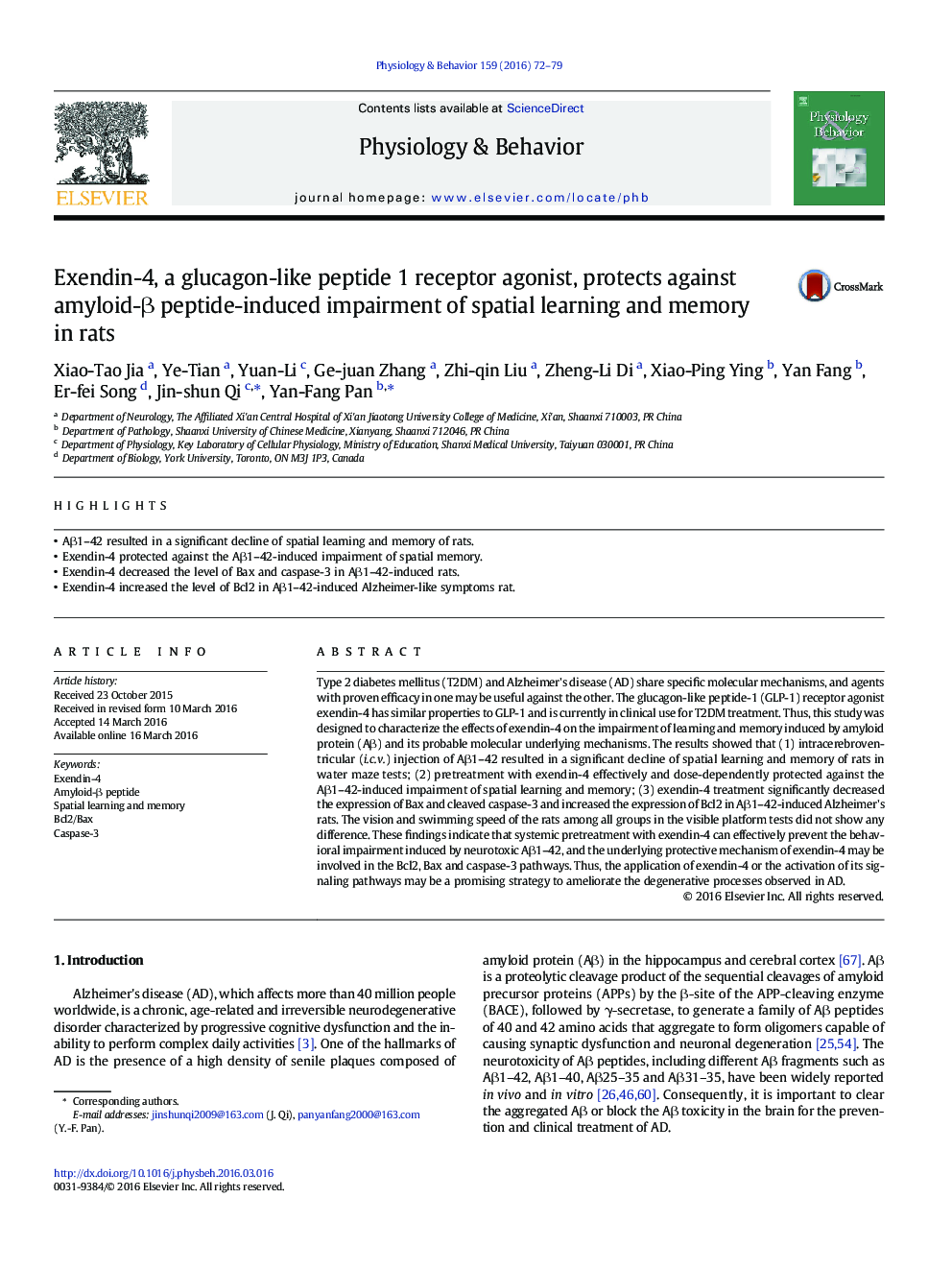| کد مقاله | کد نشریه | سال انتشار | مقاله انگلیسی | نسخه تمام متن |
|---|---|---|---|---|
| 2843931 | 1571159 | 2016 | 8 صفحه PDF | دانلود رایگان |

• Aβ1–42 resulted in a significant decline of spatial learning and memory of rats.
• Exendin-4 protected against the Aβ1–42-induced impairment of spatial memory.
• Exendin-4 decreased the level of Bax and caspase-3 in Aβ1–42-induced rats.
• Exendin-4 increased the level of Bcl2 in Aβ1–42-induced Alzheimer-like symptoms rat.
Type 2 diabetes mellitus (T2DM) and Alzheimer's disease (AD) share specific molecular mechanisms, and agents with proven efficacy in one may be useful against the other. The glucagon-like peptide-1 (GLP-1) receptor agonist exendin-4 has similar properties to GLP-1 and is currently in clinical use for T2DM treatment. Thus, this study was designed to characterize the effects of exendin-4 on the impairment of learning and memory induced by amyloid protein (Aβ) and its probable molecular underlying mechanisms. The results showed that (1) intracerebroventricular (i.c.v.) injection of Aβ1–42 resulted in a significant decline of spatial learning and memory of rats in water maze tests; (2) pretreatment with exendin-4 effectively and dose-dependently protected against the Aβ1–42-induced impairment of spatial learning and memory; (3) exendin-4 treatment significantly decreased the expression of Bax and cleaved caspase-3 and increased the expression of Bcl2 in Aβ1–42-induced Alzheimer's rats. The vision and swimming speed of the rats among all groups in the visible platform tests did not show any difference. These findings indicate that systemic pretreatment with exendin-4 can effectively prevent the behavioral impairment induced by neurotoxic Aβ1–42, and the underlying protective mechanism of exendin-4 may be involved in the Bcl2, Bax and caspase-3 pathways. Thus, the application of exendin-4 or the activation of its signaling pathways may be a promising strategy to ameliorate the degenerative processes observed in AD.
Journal: Physiology & Behavior - Volume 159, 15 May 2016, Pages 72–79